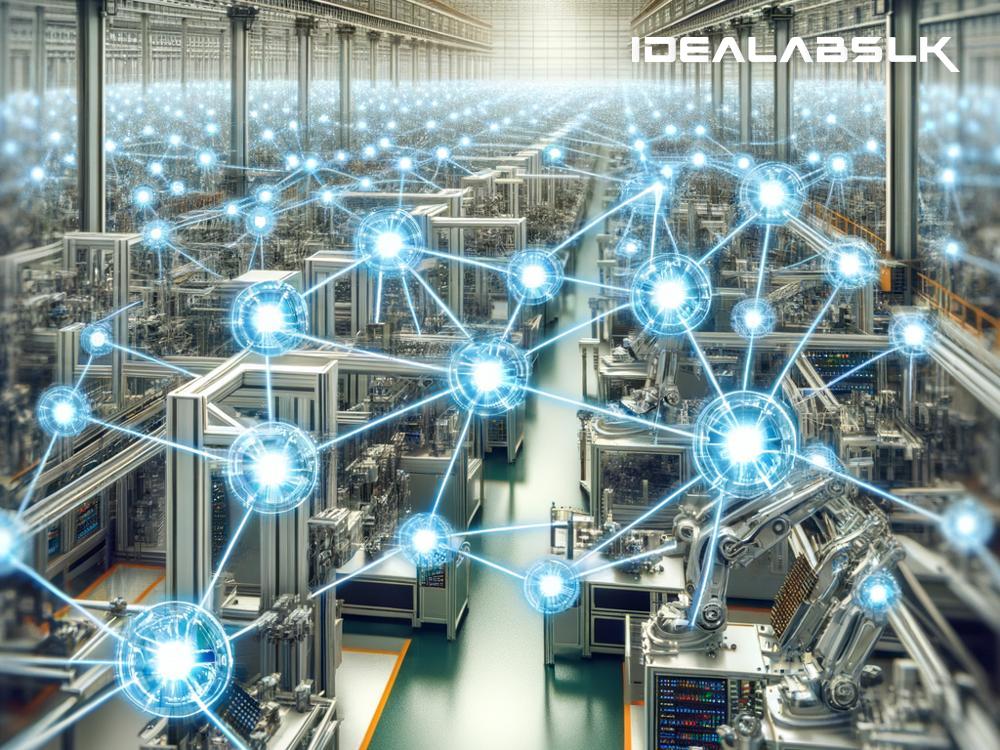Harnessing the Power of Blockchain in Smart Manufacturing: A Simplified Guide
In today’s manufacturing world, buzzwords like 'Smart Manufacturing' and 'Blockchain' often float around with much hype. While they sound fancy and complicated, at their core, they're all about making things better, faster, and more reliable. Let's dive into the world of smart manufacturing and explore how blockchain plays a pivotal role in revolutionizing it.
What is Smart Manufacturing?
Imagine a factory where everything is interconnected, from machines on the factory floor to the systems that plan and manage production. This factory can predict when a machine will break down before it actually happens or adjust production in real-time based on sudden changes in demand. Welcome to smart manufacturing - a setup that uses data and technology to make manufacturing more efficient, flexible, and reliable.
Enter Blockchain: The Game Changer
Now, imagine if all the data in this super-efficient factory were stored in a way that is tamper-proof, transparent, and secure. That's where blockchain comes in. Most people know blockchain as the technology behind cryptocurrencies like Bitcoin. However, its potential extends far beyond just financial transactions.
Blockchain is essentially a decentralized ledger that records all transactions across a network of computers. This means that once something is recorded in the blockchain, it's nearly impossible to change it, ensuring a level of security and trust that wasn't possible before.
How Blockchain Powers Up Smart Manufacturing
Let's unpack the magic blockchain brings to smart manufacturing:
-
Trustworthy Data Sharing: In a smart factory, components, products, and machines constantly generate data. With blockchain, this data can be shared across the network with an assurance of its integrity. This trust enables all parties, from suppliers to customers, to make better, informed decisions.
-
Enhanced Security: Manufacturing involves sensitive information, including intellectual property and personal data. Blockchain’s secure nature ensures that this information remains protected, reducing the risk of theft or tampering.
-
Supply Chain Transparency: By recording every step of the supply chain process on a blockchain, smart manufacturing achieves unprecedented levels of transparency. This means it’s easier to track the origin of materials, ensure ethical sourcing, and monitor the quality and authenticity of products.
-
Smart Contracts: These are self-executing contracts with the agreement directly written into lines of code. In smart manufacturing, they can automatically trigger actions like payments, orders, or notifications based on certain conditions being met, streamlining processes and reducing the need for intermediaries.
-
Predictive Maintenance: When combined with IoT (Internet of Things) devices, blockchain can enhance predictive maintenance. Data from IoT sensors can be securely recorded on the blockchain, providing an accurate history that can predict when machinery might fail and prevent costly downtime.
Real-World Applications
-
Automotive Industry: Major car manufacturers are using blockchain to track the sourcing of raw materials and ensure the authenticity of automotive parts. This helps in preventing counterfeit parts from entering the supply chain and ensures better safety and quality of vehicles.
-
Food and Beverage Sector: Companies are utilizing blockchain to track the journey of food products from farm to table. This not only helps in ensuring the quality and safety of food but also allows consumers to verify the origins of their food, building trust in brands.
-
Pharmaceuticals: In an industry where counterfeit drugs pose a serious health risk, blockchain is being used to secure the supply chain, ensuring that medicines are genuine, properly stored, and handled.
The Road Ahead
The integration of blockchain into smart manufacturing is still in its early stages, but its potential is immense. As technology advances and becomes more accessible, we can expect to see broader adoption across various industries, further transforming the landscape of manufacturing.
Conclusion
By now, it should be clear that blockchain is much more than just the backbone of cryptocurrencies. In the realm of smart manufacturing, it's a transformative technology that promises to make manufacturing more secure, efficient, and transparent. While challenges remain, particularly in terms of technology maturity and adoption, the future of smart manufacturing, powered by blockchain, looks brighter than ever. As we continue to innovate, the synergy between blockchain and smart manufacturing will likely open up new horizons, making 'factories of the future' a reality sooner than we think.

